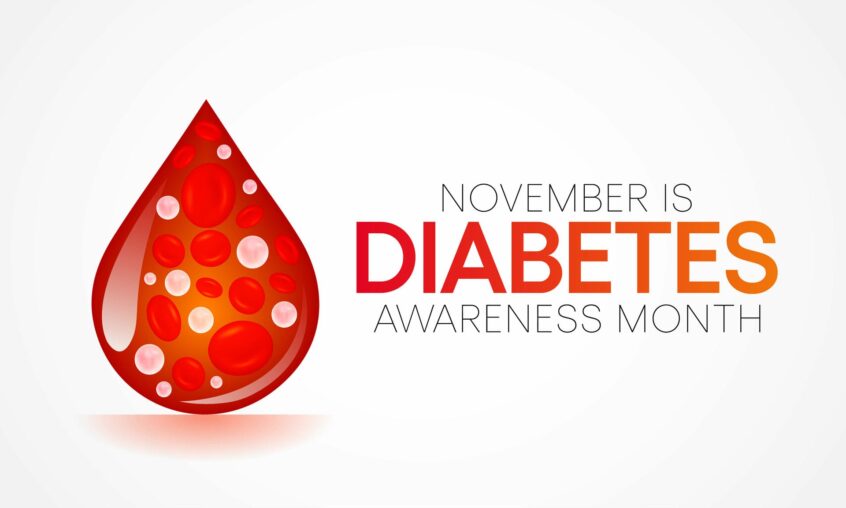November is Diabetes Awareness Month, a great time to call attention to a little-known fact. Diabetes and hearing loss are two of the most common health problems that affect the American population. In fact, according to the National Institute on Deafness and Other Communication Disorders, approximately 37.5 million Americans 18 and over have problems hearing; and according to the Centers for Disease Control, 37.3 million people in the U.S. have diabetes.
But how are these two common conditions related?
There are many reasons people have difficulty hearing. Most commonly, hearing loss can occur as you age or if you are exposed to loud noises, usually for an extended period of time.
But diabetes can put you at risk for hearing loss, too. Though the actual disease process isn’t clear, it’s thought that over time, high blood sugar levels can damage the small blood vessels and nerves in the inner ear. Low blood sugar can damage how the nerve signals travel from the inner ear to your brain. Both types of nerve damage can lead to hearing loss.
Hearing loss is twice as common in people who have diabetes as it is in people of the same age who don’t. Even people with prediabetes (blood sugar levels higher than normal but not high enough yet to have type 2 diabetes) have a 30% higher rate of hearing loss than people with normal blood sugar levels.
If you have diabetes, it’s important to monitor the condition closely to be sure it’s well-controlled. The American Diabetes Association suggests:
- Keep your blood sugar as close to your target levels as possible.
- Get your hearing checked every year.
- Avoid other causes of hearing loss, including loud noises.
- Ask your doctor whether any medicines you’re taking can damage your hearing and what other options are available.
Because hearing loss can happen over a long period of time, the loss may be very gradual and hard to detect. Get your hearing checked if you:
- Often ask others to repeat themselves.
- Have trouble following conversations with more than one person.
- Think that others are mumbling.
- Have problems hearing in noisy places, such as busy restaurants.
- Have trouble hearing the voices of small children and others with quiet voices.
- Turn up the TV or radio volume too loud for others who are nearby.
- Have problems with your inner ear that also affects your balance.
There are many reasons to keep your blood sugar in your target range and your diabetes under control—protecting your hearing is just one of them.
Remember, you should have your hearing checked by a hearing healthcare professional, such as a doctoral-level audiologist, when you are first diagnosed with diabetes and every year thereafter, according to the American Diabetes Association. This provides you with a baseline hearing evaluation. Regular subsequent evaluations can detect a hearing loss at its earliest stages.
Associated Audiologists has eight convenient locations, six in Kansas in Overland Park, Prairie Village, Shawnee Mission, Leavenworth, Lawrence and Manhattan; and two in Missouri in Kansas City and Independence. We have 16 doctoral-level audiologists who specialize in diagnosing and treating hearing loss and we offer prescription hearing devices to fit every budget from the world’s most respected manufacturers, including Widex, Phonak, ReSound, Signia and Starkey.



